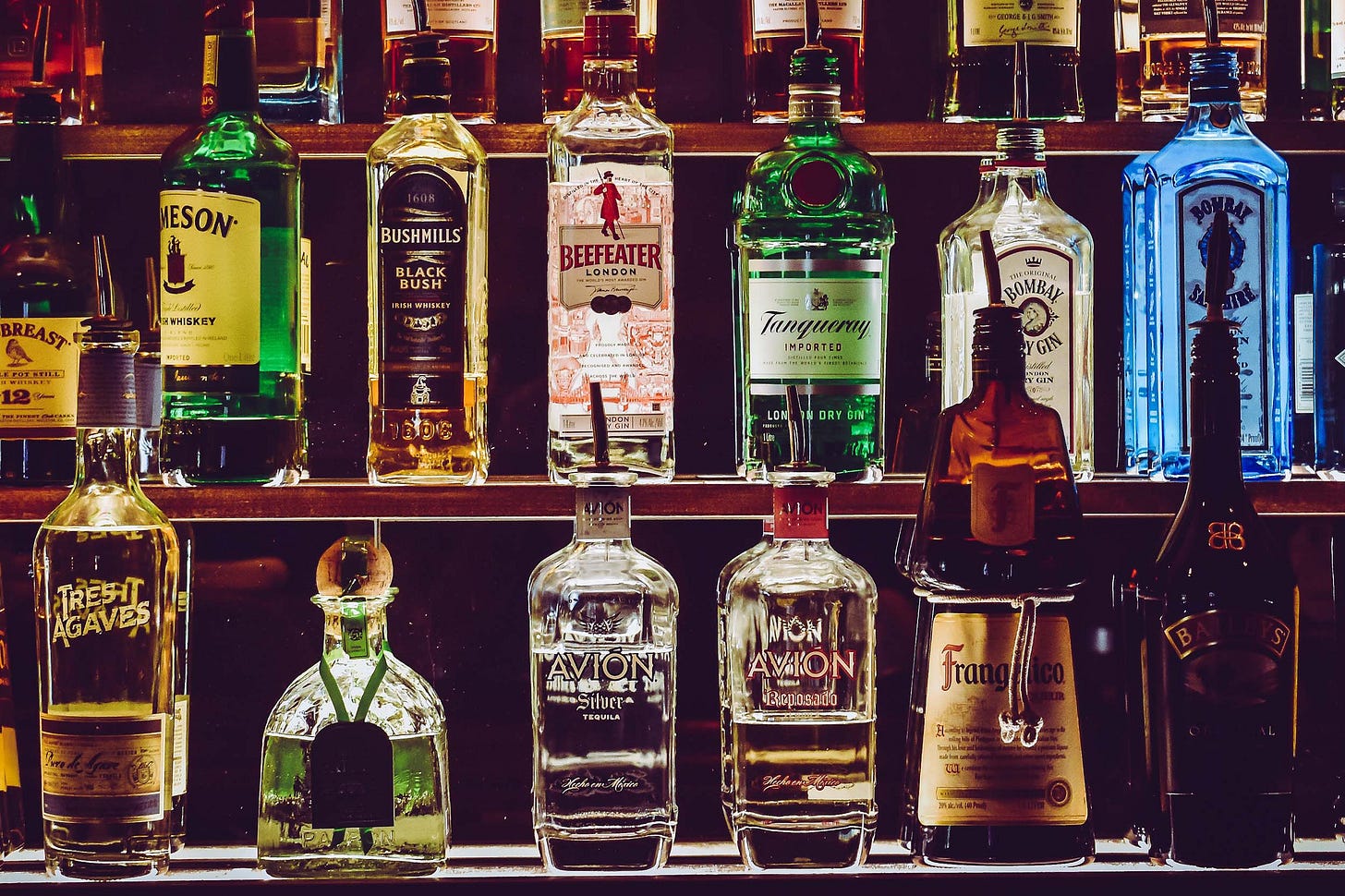Why I disagree with Terry Smith on Diageo
Terry Smith selling Diageo for Fundsmith
Terry Smith is someone I respect a lot — Accounting for Value is one of the classics of the genre and his annual letters are a must-read (Fundsmith has still annualised 14.8% over 15 years, so whatever his stockpicking mistakes, he still beats a lot of active managers).
Now here’s where it gets interesting. Smith sold Diageo, one of the booze makers I write to you about frequently. Here’s his reasoning:
Diageo, which we had owned since inception, has exhibited problems with its new management, shown by a lack of information about its Latin American business which produced results far worse than the sector in this area. Moreover, we suspect the entire drinks sector is in the early stages of being impacted negatively by weight loss drugs. Indeed, it seems likely that the drugs will eventually be used to treat alcoholism such is their effect on consumption.
He’s not wrong regarding LATAM. And he’s not wrong with Diageo’s management — in general I think the management of most of the booze companies is bloated and top-heavy, with ineffectual lieutenantsci and organisational bloat like you wouldn’t believe. I suspect this is due to booze being basically something that’s hard to not sell — for centuries booze makers have sat in an envious position of selling something desirable and predictable. If you’re in plum position for that long, you’re gonna get lazy.
I think we’re all jumping the gun when it comes to the weight loss drugs. Yes, it is going to curb consumption — but my feeling is a lot of this is priced into the broader alcohol industry, because you have stocks trading at 5 and 10 year lows. Heineken, one of the world’s dominant beer brewers, is trading at around 10 year lows with a 10% free cash flow yield to boot. Diageo trades around COVID lows. This is not to say that normalisation won’t affect drinking either — of course it will — but if you’re buying companies where you factor in a 2-3% organic growth rate at multiples well below their historical average, then you’re probably buying a good thing (especially if you consider the run-rate for booze drinking is practically infinite — as far as we know, our great-great grandchildren will be slamming back a Heineken in a century! — meaning, you’re compounding 2-3% growth for a very long time).
Why do I think the ‘zempy stuff is a case of throwing the baby out with the bathwater? One word: fun.
People love to look good but people also like to have fun. I realise this is a startlingly obvious statement (in the category of “no shit, Sherlock”), but it’s one that so many so-called Wall St analysts seem to miss. Nobody would spend money on whisky, champagne or any other kind of alcohol if it did not bring with it the promise of a good time (“getting drunk”)
Maybe it is because we live in a time of sanctimonious moralising, where the mere suggestion of having fun is swatted away like a bad smell, by these neo-Victorian Protestant kill joys who no doubt go for a run at 6am and then an ice bath and then “grind” for the rest of the day before going home for a nice bowl of gruel. Doctors constantly issue warnings about alcohol and cigarettes, etc, warning that they have an impact on health and can lead to death (my favourite quote: “the only thing I want to know is where I’ll die, so I’ll never go there”). The truth is, we all die — life is the leading cause of death, with a hit rate of 100%.
My point is that people still desire fun and they desire changing their chemical state. This has been the case for hundreds, if not thousands, of years. As sure as I am that the weight loss drugs will have some effect, I think their effect is overstated — 1) not everybody wants to be on ‘zempy 2) not everybody is overweight and wants to be on ‘zempy and 3) people have an innate desire to drink as they have done for a long time — it is a ritual.
A second more salient point is made by Andrew over at East 72 — just because brands have existed for a long time doesn’t make them valuable — or rather, we place too much importance on the value of these things. I think there may be some truth to this but I think it’s important to remember the barriers to entry that prevent new players from competing on the same level as the “big guys”. A new whisky distillery, for instance, costs at least $2mn to build and then you’re looking at running costs of at least $1mn per year. That’s not even thinking about distribution or marketing, really — and forget about benefits of scale — Glenfiddich makes 21 million liters of the stuff a year.
We’ve seen the high barriers to entry come into play with the recent closures of many independent breweries, etc. Much like LVMH (itself a booze player), the advantage of scale shouldn’t be underestimated— when you control so much of the market, then you can control pricing (within reason… see Remy/tariffs).
Booze brands & companies do need to change — especially the larger ones — there’s clearly too much faff and a reliance on “business as usual”. If the valuation discount continues for companies like Diageo, they ought to expect the arrival of an activist or a raider.



